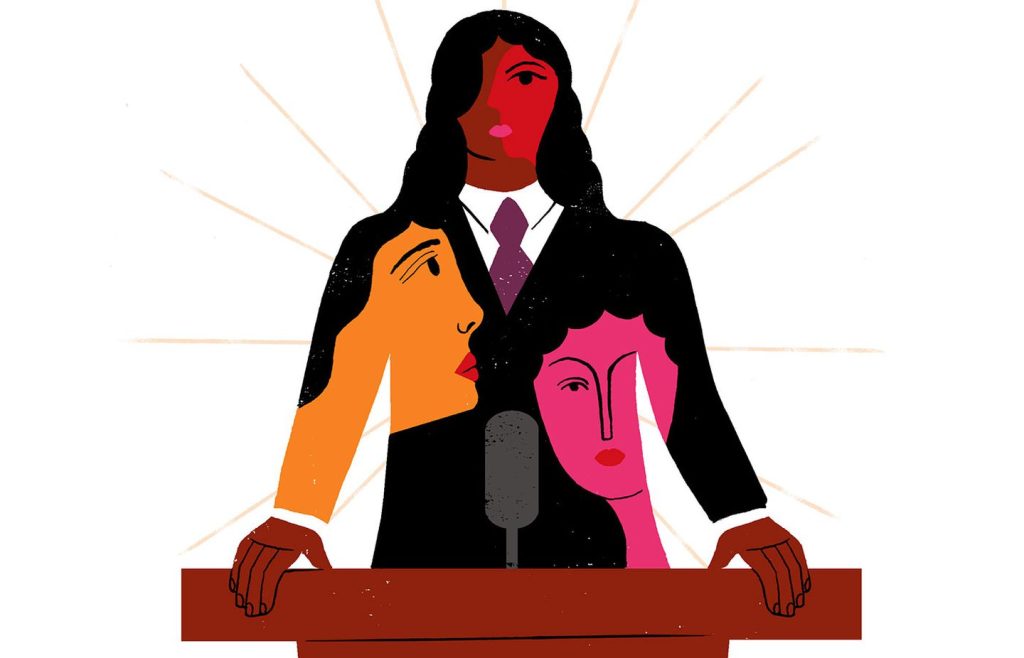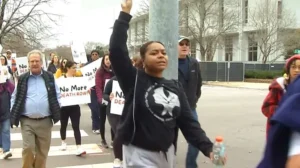The promised land. Generations of Black people joined the Great Migration seeking economic opportunities and space from the containment and violence of Jim Crow. They traveled North, to the Midwest and West.
Decades later, Georgia is fueling a reverse migration. The political tide that helped turn Georgia purple and then blue was powered by demographics. A plurality, 1.1 million, of Georgia’s eligible Black voting population were born outside the state. The majority, 119,000, hailed from New York, while 47,000 Black migrants from Illinois and 45,000 from Michigan boosted the numbers.
Long a political and cultural mecca, Georgia is an epicenter of Black political and cultural prowess, home to some of the nation’s most cherished Black institutions such as Morehouse, and Spelman Colleges, the King Center and the historic Ebenezer Baptist Church. Georgia is also a Black financial powerhouse. The state’s film industry generates $13.1 billion and provides 92,000 jobs., The music industry is also bustling to the tune of $3.8 billion and produces 19,955 jobs. Black iconic talent and leaders dominate both industries.
Ironically, the coronavirus is raging in the same state that hosts the Centers for Disease Control, the nerve-center for research on the virus. COVID has struck Georgia, particularly the Black community, with deadly impact, despite the best efforts of the Black church and civic networks. The state’s Republican governor and legislature’s intransigence has stymied the best efforts to persuade people to mask up and stay home. The refusal of state Republican officials to take the virus seriously and promote sound public health policies and education has taken a disproportionate toll. More than 4,855 Black Georgians have contracted COVID or 32 percent of all cases in the state and 115 have lost their lives.When and Where We EnterBlack women have placed their mark in every arena of the state– long before the women powered electoral movements currently drawing pundits and pollsters’ eyes. Black women boldly entered the public square and fought for their rights. While we celebrate the fierce fighting force of Black women who delivered Democratic victories in the Senate runoff elections, the tradition is long and unbroken. Black women defied Jim Crow strictures and gender conventions to organize for better wages and working conditions as early as 1881.
Six Black women, Matilda Crawford, Sallie Bell, Carrie Jones, Dora Jones, Orphelia Turner, and Sarah A. Collier, organized Black washerwomen in Atlanta to strike for better wages. Dubbing the organization the Washing Society of Atlanta- the strike grew to 3000 women. Despite the arrests, fines and proposed fees, the resolve of the striking laundresses inspired other domestic workers. Cooks, maids and nurses began demanding higher wages. Hotel workers went on strike. Unlike past strikes, employers—aware of the Black labor unrest—feared they could no longer find replacement workers. The Black washerwomen won their demand of $1 per 12 pounds of clothes. They also sparked a fight for the dignity of Black workers.CAPTIONCAPTIONLorem ipsum dolor sit amet, consectetur adipiscing elitLorem ipsum dolor sit amet, consectetur adipiscing elitClaiming the Ballot BoxShirley Franklin staked her claim on Atlanta’s City Hall in 2002 and won, netting two firsts as the first Black woman to be elected as the city’s mayor and leading a major city in the South. The second Black woman to command the spot, Keisha Lance Bottoms, is running for re-election in 2021.
Black women have always been essential to Georgia’s polity– but in 2018, Stacey Abrams, the former Minority Leader of Georgia’s General Assembly, won the Democratic nomination for governor and came within a hair of winning. Abrams lost by just 55,000 votes, working with a deck stacked against her and the Black community. Opponent, Brian Kemp, administered the election as secretary of state. In that role, Kemp purged more than 1 million voters from the polls. According to the Associated Press, 70% of purged voters were Black.
But Abrams and other Black women in the state executed a solid grassroots plan to win electoral power by recruiting and registering the state’s often overlooked or taken for granted Black, Latino and Asian American voters. Forging coalitions and recruiting local leaders across the state, groups like the New Georgia Project, Black Voters Matter, Georgia Coalition for the People’s Agenda moved beyond large urban centers and won over eligible voters in rural and neglected parts of the state.
Georgia’s demographic shifts and electoral power moves netted gains up and down the ballot.
Lucy McBath, a Black woman who had never run before, bested incumbent Republican congresswoman Karen Handel for the seat once held by Newt Gingrich. McBath, a former flight attendant who had become a gun control activist after her teenage son was shot at a gas station by a white man who complained about the music her son was playing. McBath won re-election in November 2020.
Nikema Wiliams joined McBath as part of Georgia’s congressional delegation when she became the first woman elected to represent the 5th Congressional District, the seat held by the late civil rights icon John Lewis.
Black candidates are also laying claim to law enforcement posts in Georgia. For the first time, four Black sheriff’s will lead law enforcement in four counties.
Patrick Labat, Fulton County, Craig Owens, Cobb County, Keybo Taylor, Gwinnett County, and Melody Maddox, DeKalb County, are now the highest-ranking law enforcement officials. Maddox is also the first woman to serve as DeKalb’s sheriff.




